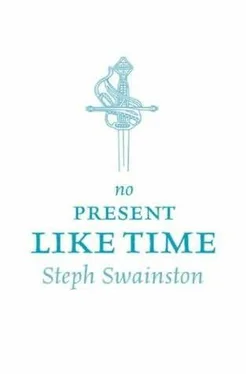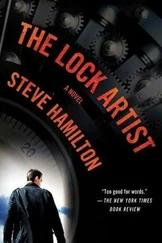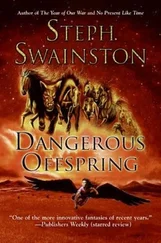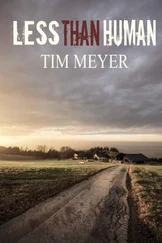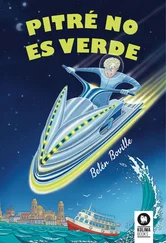A mirth of female stinguish looked up from the forecourt of their hall, through the surface tension. I waved to them; they turned to each other and giggled, long silver fingers over their lipless mouths in girly gestures.
Stinguish are a lighthearted people who live in groups called mirths. They communicate by laughter that carries underwater for thousands of kilometers, so any two individuals can chatter to each other through a network of mirths, anywhere in the vast ocean. According to Tarragon, chatter is exactly what they do; their flaky air-head nonsense pervades every cubic meter of the sea. Stinguish mirths migrate fifteen hundred kilometers twice a year, dive two thousand meters down to chasms, or lounge on the beaches in the tidal zone and breathe air. No stinguish was ever solitary. They had even more camaraderie than Plainslanders did. If you kicked a football along the streets of Rachiswater, an Awian would either tell you to keep the noise down, or point at the KEEP OFF THE GRASS signs. If you kicked a football about in the wrong side of Hacilith, someone would knife you and steal it. In Eske, Plainslanders start fifty-a-side matches that last for a week. But stinguish never stopped playing. How they managed to swim vast distances and remain cheerful is one of the great mysteries of nature.
My boots crunched on the pebbles. I passed a refreshment stall under which crouched a pair of brown, scaly tea dragons. Their innocent yellow eyes tracked me. Tea dragons breathe streams of hot, black tea. They were being used as caddies; I approached carefully because I didn’t want to be sprayed with it. The stall holder was a polyp, a teacup held in each tentacle and its wet skin shining in the sun. “What’s it like being a polyp?” I asked.
“It’s awful. Bits of me keep budding off and becoming accountants.”
The polyp sold tea to a flabberghast who bought a whole armful of ghostly doughnuts. I didn’t see the flabberghast in time and accidentally walked straight through his corpulent, overhanging belly.
“Hey!” he exclaimed. “Look where you’re going, skinny boy!”
“Sorry, sorry.” I backed down to the water’s edge, my hands raised.
Immediately a stinguish girl shot out of the wavelets. She grabbed my ankle with fingers as bony as a bird’s feet.
I shook my leg. “Get off! What are you doing?”
“Can you spare some change, please?”
The stinguish was young, with circular silver eyes, not much of a nose at all, and an ample mouth side-to-side of her round smooth head. Her mouth turned up at the corners like a dolphin’s and was full of small pointed teeth. Her thin arms grew down into long, bony claws, her chest was flat and lacking nipples, and her body ended in a broad tail like an eel’s-thick in the middle, edged with a fringe of fin that came to a point. She coughed up some water, shuddered and quailed as she took a lungful of air, as if she didn’t like it at all. Water drained out of the gills that lay shaped over her ribs. The stinguish’s smooth silver skin was extraordinary; every imaginable pastel color shone on her iridescent metallic hide. I could see the herringbone arrangement of muscle in her tail. Her ribs were like ripples in platinum sand; she looked malnourished.
Oddly, she was alone and she hadn’t laughed once. She was not behaving like a stinguish at all. She waved her tapering tail exhaustedly and pleaded with big lidless eyes. “Please. I need to buy things.”
I crouched down and peeled her pointed, nailless fingers from around my ankle. “Hello, little urchin,” I said.
“I’m not an urchin. Urchins are prickly.”
“No, they’re not all bad-tempered. I was one once.”
The stinguish shook her head and an expression of confusion appeared in her medallion eyes. “What are you going on about? Can you spare any change, or not?”
I wondered what a cheerful, giggling, stupid stinguish wanted with money. “Why aren’t you with your mirth?”
“I don’t have the time for this. I have to go and buy more things. Look at it all,” she said, distraught. She turned her face left and right taking in the vast market. She was desperate to be out there, beach-combing among the stalls.
“Listen. There’s a stinguish representative in Epsilon’s court. I can introduce you to her if you’re lost. She’s called Far-Distant. I’ll-”
“I’m not called that anymore. My name is Summer-Sale.”
“Far-Distant? Is it you? You’ve grown very thin! Don’t you remember me?”
She bubbled distractedly. “All the things on the stalls look really pretty and exotic when they’re arranged together, but if I buy one and take it away, it’s not the same. It seems to turn into tacky crap. I just want them all. I spent all my money on clothes, slime and jewelry, and now I’ve no money left. Please…I’m missing the music and the lights, and the stall holders talk so friendly.”
Far-Distant had evidently become a Constant Shopper. “No, my sister. I won’t give you anything. No one you meet in the market will be as friendly as your mirth. I think you should go back to them.”
The stinguish started wailing. I understood why, because I know the torment of addiction, and the effects of all addictions feel similar. Far-Distant would have to do withdrawal from shopping, and whatever world she must return to will seem very cold and unforgiving. I stroked her head but hundreds of tiny circular transparent scales rubbed off and stuck to my hand. Her mackerel skin shone.
She tried to shake me by my ankle. “I need money; I’m so unhappy.”
“There’s much to be happy about. If it had seasons, the ocean would be beautiful at this time of year.”
She looked for a way to escape me. “I’d rather go hungry than trouble you further…”
“No! Come back! OK, I’ll give you some cash,” I said soothingly. “You’re just a bit lost. Why not call for your mirth, they’ll help you.”
“You don’t understand,” she said bitterly. “All stinguish are lost and they always have been. All of us! We don’t belong here. Insects keep destroying our homes.”
“You mean Epsilon isn’t your home?”
“No. Up there.” Far-Distant dragged her arm out of the water and pointed vaguely away from the sea, across the open grassland.
“In the sky?”
“No, silly. Vista.”
Vista’s pale wasteland seemed to focus as I stared at it. For all its immense size, it looked weightless, part of the air. “I know that the Insects bored through from Vista to Epsilon so thoroughly that Vista slipped down the path they made.”
“All the sea fell into the Somatopolis,” said Far-Distant. “And the water carried us through, too. Ha! Not us exactly; our ancestors-it happened a million tides ago. But Insects ate the Somatopolis so we swam on again, and we ended up here. We’re very lucky to survive; the sea kraits and so on all became extinct. Everyone who was too big to fit down the waterspout died, left high and dry. The bad old snakes squirmed around in the ooze, too heavy to support their own weight in the air, and they were crushed. The ones trapped in pools starved when the food ran out. All of us stinguish rejoiced. The kraits used to eat us, but we escaped and they didn’t, ha ha. But that’s why stinguish are very lost. No wonder I feel lonely and have to go shopping to cheer myself up…Now can I have some change?”
“Well, all right.” I dug in my pocket for coins. “But tell me first; it’s just a myth, isn’t it, that stinguish can chat underwater?”
“We can! For two thousand kilometers.”
I shook my head. “I hardly believe it. I’m a messenger and if it was possible to shout that far I’d be redundant. But I’m not worried by those tales; I know water’s thicker than air and probably just muffles the sound.”
Читать дальше
